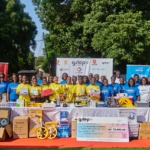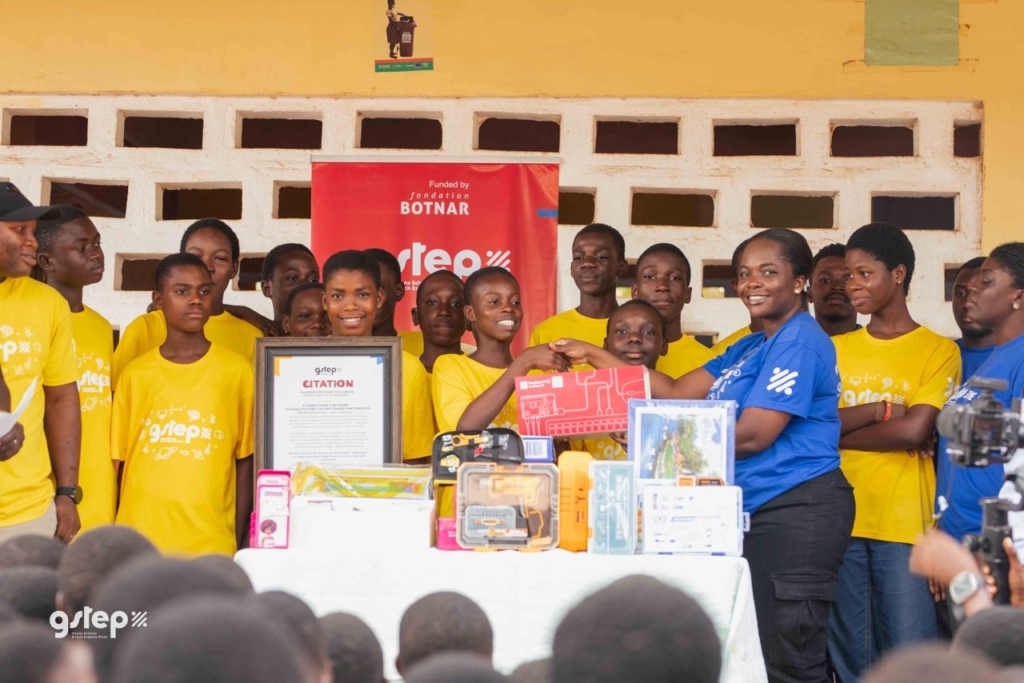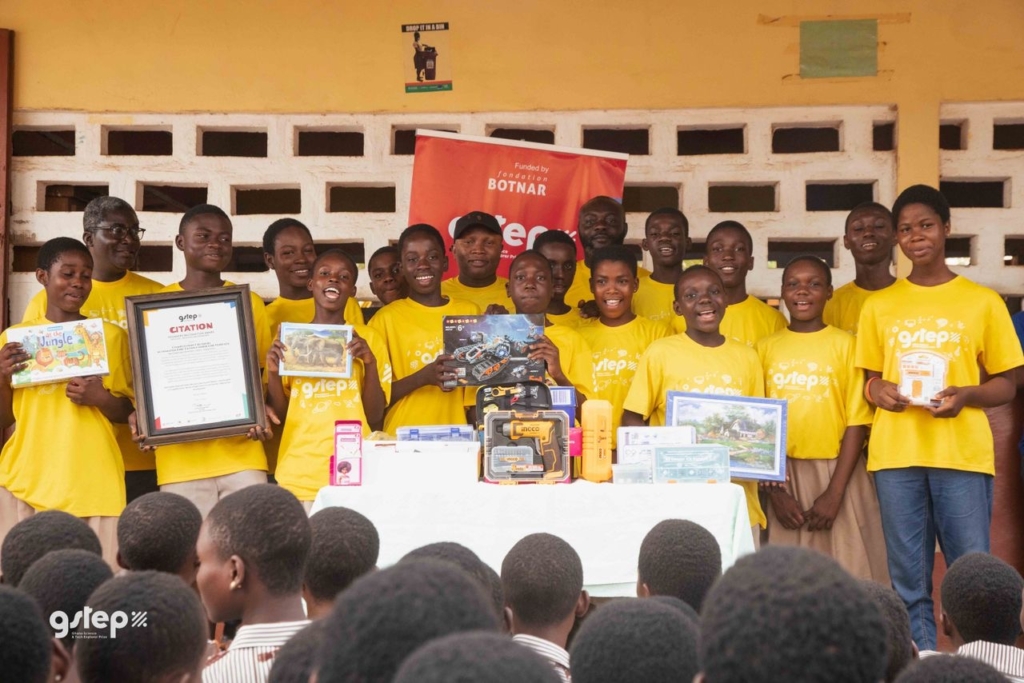
The Ghana Science and Tech Explorer Challenge Prize (GSTEP) 2025 Homecoming has ended after a tour of three regions to honour and equip schools whose teams excelled in this year’s competition.
Between 24th September and 6th November 2025, the GSTEP Secretariat visited 27 winning schools across districts in Greater Accra, Eastern, and Ashanti Regions. The districts included Ga South, Weija Gbawe, Ablekuma West, Ningo-Prampram, Krowor, Tema West, Tema Metro, Old Tafo, Sekyere South, Akrofuom, Obuasi, Asante Akim Central, Juaben East, Ahafo Ano South East, Oforikrom, Bosomtwe, Abuakwa South, Suhum, Abuakwa North, and New Juaben South and North.
At each stop, students, teachers, parents, and community leaders gathered to celebrate the young innovators whose creativity and problem-solving skills stood out in the 2025 GSTEP Challenge. The visits highlighted GSTEP’s growing influence in promoting STEM interest, academic performance, and confidence among junior high school learners in Ghana.
Headteachers shared inspiring success stories. Emmanuel Bagut, Headteacher of Ayikuma Memorial M/A Basic School, said:
“GSTEP has made an enormous impact in this school. Since its inception, we had never recorded an Aggregate 9, but after joining GSTEP in 2022, two of our students achieved it this year. Others scored 10, 12, and 14, and gained admission into top schools like PRESEC, Prempeh College, and Adisadel. Many of our students once feared Mathematics and Science, but GSTEP has changed that. Their confidence has grown, and academic performance has transformed.”
To strengthen hands-on STEM education, GSTEP presented each winning school with a full range of science, technology, engineering, and mathematics tools aligned with Ghana’s science curriculum.
The science kits included laboratory essentials such as microscopes, pH meters, test tubes, conical flasks, thermometers, Petri dishes, measuring cylinders, funnels, burettes, tongs, wash bottles, and triple-beam balances. Schools also received reagents like iodine, Benedict’s solution, Millon’s reagent, copper(II) sulphate, and hydrochloric acid to support real scientific experiments.
To advance digital skills, GSTEP provided laptops, all-in-one computers, projectors, 3D printer filament, jump wires, LED sets, servo motors, and motor drivers, allowing students to explore robotics, coding, and digital innovation.
To deepen practical problem-solving, schools were given soldering kits, robotics sets, multimeters, hand drills, Arduino UNO kits, Raspberry Pi kits, toolkits, and sensor modules for hardware-based learning. Mathematical sets, geometry tools, graph books, measuring devices, puzzles, and art sheets were also provided to support analytical and creative thinking.
The 2025 Homecoming reinforced GSTEP’s mission to nurture curiosity, creativity, and critical thinking while building sustainable STEM ecosystems in schools. By providing practical tools, GSTEP ensures that innovation continues beyond the competition.
Speaking at the final stop of the Homecoming, Afua Oforiwaa Asiamah-Adjei, Executive Director of DreamOval Foundation, said:
“This past year, we saw some of the best innovations, students, and schools. The semi-finalist stage pushed participants to ideate, create, and stretch their abilities. As we expand to the Volta Region in 2026, we look forward to bringing GSTEP to more young people across Ghana. Join us on this journey as we continue shaping tomorrow’s innovators.”
The 2026 edition of the GSTEP Challenge will extend to the Volta Region, giving more junior high school students across Greater Accra, Eastern, Ashanti, and Volta Regions the opportunity to design STEM-based solutions to local problems under the theme “Curiosity to Impact: STEM Without Borders”.

With broader regional participation and stronger STEM ecosystems, GSTEP continues to play a key role in nurturing Ghana’s next generation of innovators and problem-solvers.
The 2026 GSTEP Challenge is implemented by a consortium of four organisations: DreamOval Foundation (lead implementer), Partnership Bureau (partnerships and sponsorships), Shulem Lake (resources and materials), and Practical Education Network (mentorship and coaching).
The programme is run in collaboration with the Ghana Education Service and the Ministry of Education and is funded by Fondation Botnar.
